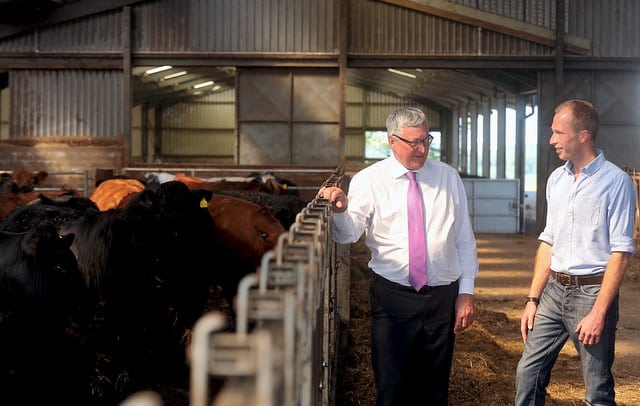Rural and Environment
Brexit impact on Scotland’s rural economy
March 13, 2019 by Alan Bannon No Comments | Category Agriculture, Environment, Farming, food and drink
For the whole of the Scottish Parliament’s lifetime, the rural economy has benefitted from our membership of the EU. Yet, with only 17 days from potentially leaving the EU, we still do not know if we leave with a deal or not.
When and if we leave the EU, it is clear that whatever deal or no deal scenario we find ourselves in, it will be significantly worse than what we currently enjoy through our membership of the EU.
Various pieces of independent research undertaken during the last two years have clearly shown that all sectors of the Scottish rural economy would be negatively affected – particularly in the event of no deal – but farming and food production sectors are especially exposed.
Today I have published a document that highlights some of the current known risks which an EU exit presents to Scotland’s rural economy. Although we didn’t vote for this, the Scottish Government is preparing as best we can, with the resources we have, and under the budgetary pressures we face. This snapshot highlights the work going on in my portfolio by a wide range of Scottish Government officials, often through engagement with colleagues across the UK. I want to thank them for all that they are doing to help us understand the issues and prepare as best we can with the resources we have to address the challenges ahead.
And it shows starkly that even with a deal in place, our greatest resource – people – will be affected.
Projections suggest that that EU migration will fall, creating skills shortages in industries such as farming, food processing and hospitality which rely in particular on seasonal workers. An example is that Food Standards Scotland has highlighted that 95% of official veterinarians who are essential to the safe operation of abattoirs are EU nationals.
We simply cannot afford to lose all these people from rural businesses nor from our rural communities where they and their families have made their homes.
The document also highlights the ongoing uncertainty over future funding. Under CAP alone, we receive around £500 million from Europe for our rural economy. We have no firm UK Government guarantees for this funding after 2020. We don’t know whether funding will be available to pay farmers and crofters after scheme year 2021, and there is no certainty at all on funding for tree planting, EMFF, LEADER, or agri-environment schemes that help protect and enhance our natural environment.
If we leave with no deal in place, our £15 billion food and drink sector has estimated it could lose £2 billion in sales, with massive implications for rural communities where many producers are based. The loss of free trade – an issue in any scenario – will create barriers for key exports, such a salmon and scallops, with potential delays and disruptions throughout the transport network potentially causing chaos where there currently is none. This could impact on the viability of businesses, with jobs and livelihoods potentially affected across rural Scotland.
In short, Brexit will be significantly damaging to our rural economy, which is why my number one priority remains keeping Scotland, and the rest of the UK, in the EU.
With the Prime Minister’s deal seemingly floundering, we continue to push for an extension to Article 50 – allowing for an alternative solution and to stop the clock on the proposed deal.
Background
67 expected impacts of Brexit on Scotland’s rural economy


Leave a comment